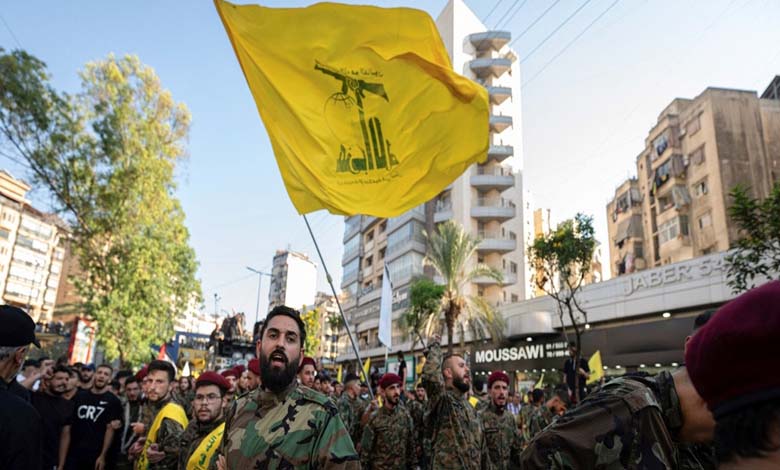Dismantling of Most of Hezbollah’s Military Sites in Lebanon: Flexibility or Manoeuvre?

Hezbollah in Lebanon shows flexibility in handling the termination of its military presence, which could also include disarming, but some observers fear this is a cover for a manoeuvre.
This Saturday, a source close to Hezbollah reported that most of the party’s military sites south of the Litani River are now under the control of the Lebanese army.
-
The Secrets of Funding: Israel Warns of Smuggling Operations for Hezbollah
-
The Shadow Game: How Israel Penetrated the Heart of Hezbollah before Hassan Nasrallah’s Assassination
The source, who requested anonymity, told Agence France-Presse that there are “265 military points belonging to Hezbollah identified south of the Litani, of which Hezbollah has handed over approximately 190.”
With the outbreak of war between Israel and Hamas in Gaza, Hezbollah opened a “support” front for Gaza, which escalated in September 2024 into an open war, weakening its capabilities and leading to the elimination of many of its leaders, including its former Secretary-General, Hassan Nasrallah.
A ceasefire agreement was reached on November 27, which stipulated the deployment of a UN peacekeeping force and only the Lebanese army in southern Lebanon.
This agreement also called for Hezbollah’s withdrawal, greatly weakened by the war, to the north of the Litani River, 30 kilometers from the Israeli border, and the dismantling of its remaining infrastructure in the south.
-
From Basta to Bazourieh: Hezbollah Strongholds “Ignite” Lebanon
-
After his death… Who is Salim Ayyash, Hezbollah member convicted of killing Rafic Hariri?
“Final Steps”
This week, a security source confirmed to Agence France-Presse that the army had dismantled “most” of Hezbollah’s military sites in the southern Litani region, in cooperation with the United Nations Interim Force in Lebanon (UNIFIL).
The source indicated that the army is “in the final stages of ending the security presence or control over all Hezbollah sites in southern Litani.”
During a visit to Lebanon, U.S. Deputy Middle East Envoy Morgan Ortagus told Lebanese TV station LBCI: “We continue to press this government for full implementation of the ceasefire, including disarming Hezbollah and all militias.”
-
Hezbollah and the Death of Nasrallah… the End of an Era?
-
Hezbollah relies on new leadership whose members are unknown to Israel
Lebanese President Michel Aoun, elected with the reduced influence of Hezbollah, reaffirmed his commitment to handing over arms to the state, while emphasizing the “importance of dialogue” to achieve this.
He added: “We will soon begin working on drafting a national security strategy.”
Hezbollah was the only military faction to retain its weapons after the end of the Lebanese Civil War in 1990.
Despite the ceasefire agreement, Israel continues to carry out airstrikes on targets it claims are linked to Hezbollah in the south, while maintaining its military presence on five “strategic” heights along the border.
-
“New Phase”: Hezbollah Announces Escalation of Clashes with Israel
-
Finances under fire: Hezbollah faces financial crisis
Flexibility or Manoeuvre?
Last Thursday, Lebanese President Michel Aoun stated that “Hezbollah” had shown “a lot of flexibility” on the issue of cooperation regarding weapons under a specific timeline.
Aoun’s remarks were conveyed by MP Saji Atieh after his visit with a parliamentary delegation to the presidential palace in Baabda, east of Beirut, according to a statement from the Lebanese presidency.
However, while this offers some optimism about the party’s potential alignment with the reality after its setbacks in the war with Israel and internal and external pressures, many observers still believe the manoeuvre hypothesis remains strong.
-
Hezbollah Engages in Violent Clashes with Israeli Army near Border
-
The Sole Survivor of Hezbollah’s Leadership: Who Is Abou Ali Reza?
This perspective is supported by the fact that Hezbollah is still trying to push the issue of disarming to the backburner, claiming that the current government’s priority should be facing Israeli attacks.
The party often plays the Israeli card, attempting to manipulate Lebanese emotions to convince them of the importance of retaining its weapons. This was confirmed by statements made by Hezbollah MP Hassan Fadlallah during a press conference at the National Assembly.
Fadlallah claimed that “the government’s priority should be facing Israeli aggressions and liberating the land,” noting that Hezbollah “is ready and willing for any dialogue on a national defense strategy.”












